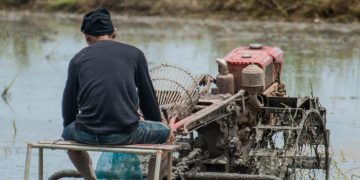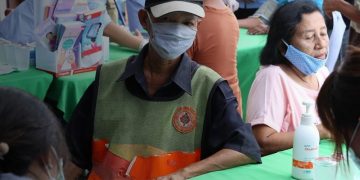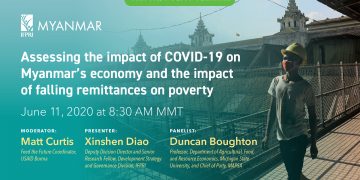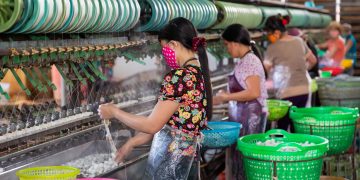What policies can the Government of Myanmar take to improve the business environment for mechanization service providers? Learn more about our recommendations from the May survey.
IFPRI Insights: COVID-19 special issue
IFPRI’s analysis of the global pandemic continues with a discussion of the role of public trust in determining the effectiveness of COVID interventions, how safety nets have worked thus far, rural governance challenges, and whether the pandemic represents an opportunity to truly transform the food system for the foreseeable future.
Assessing COVID-19’s impact on Myanmar’s economy, remittances, and poverty
Watch our recap of IFPRI's June 11th policy seminar discussing the findings of an analysis assessing the economic impacts of COIVD-19 on Myanmar's economy and the impact of falling remittances on poverty. In her presentation, Senior Research Fellow Xinshen Diao presents her research, which shows how Myanmar's April lockdown affected its GDP.
How will COVID-19 change the amount of remittances that Myanmar households receive?
Remittances are an important income source for low-income rural households in Myanmar. In their research, Xinshen Diao and Kristi Mahrt assess the impact of declining remittances caused by COVID-19 on Myanmar’s household incomes and poverty. They also estimate the financial support required to mitigate the negative effects of these impacts.
Social safety nets and COVID-19: Can we protect food security and nutrition?
COVID-19 has led to a global response through expanded social safety nets as countries struggle to mitigate the health and economic risks related to the virus and lockdowns. The June 11th IFPRI policy seminar, "Social Safety Nets and COVID-19", presents evidence on social safety nets, how well this response has addressed food security and nutrition, and opportunities and challenges going forward.
- « Previous Page
- 1
- …
- 9
- 10
- 11
- 12
- 13
- 14
- Next Page »




